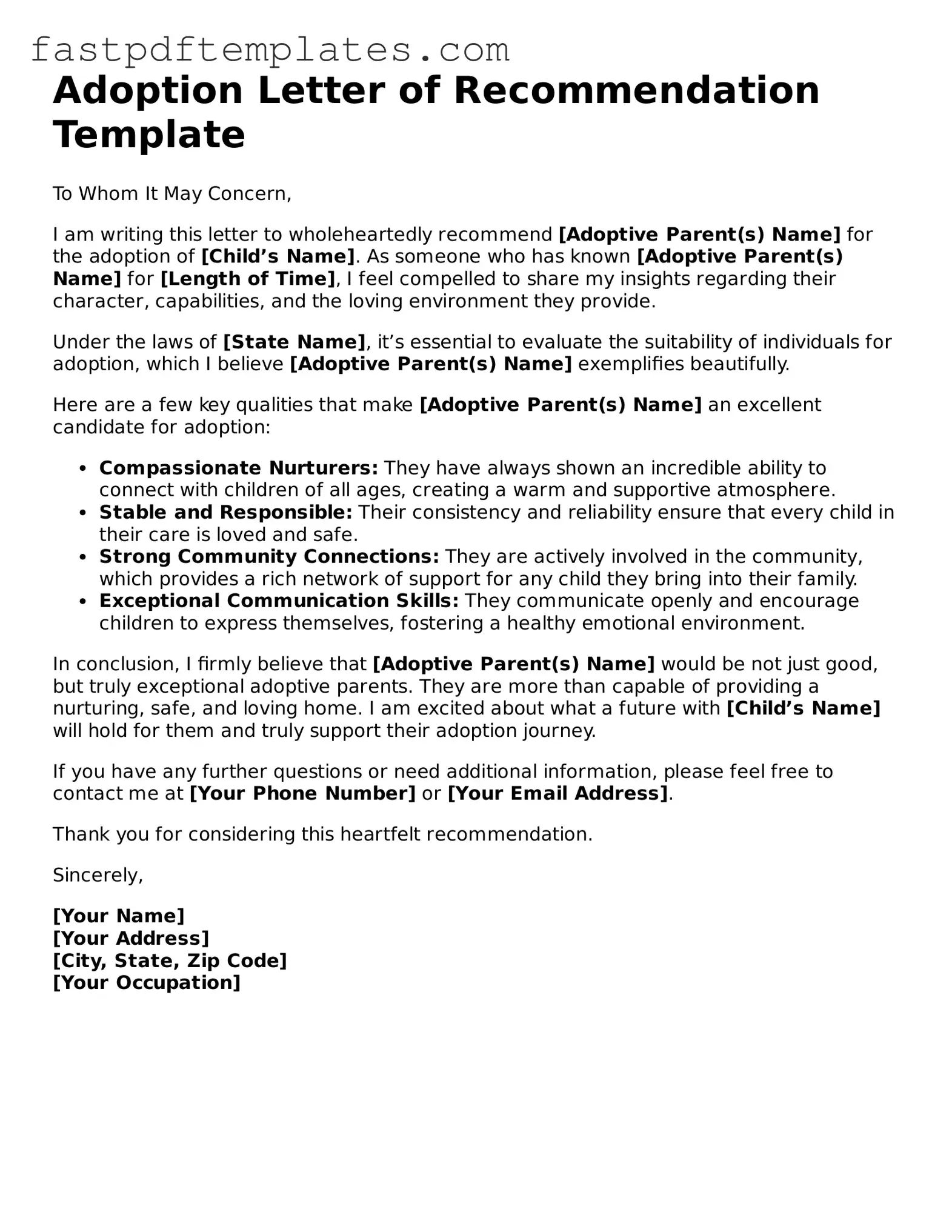Fillable Adoption Letter of Recommendation Document
The Adoption Letter of Recommendation form is a document used to provide a personal endorsement of an individual or couple seeking to adopt a child. This form typically includes insights into the applicant's character, parenting abilities, and overall suitability for adoption. Recommendations from friends, family, or professionals can play a crucial role in the adoption process.
Access Document

Fillable Adoption Letter of Recommendation Document
Access Document
Your form still needs completion
Complete your Adoption Letter of Recommendation online and download the final PDF.
Access Document
or
Click for PDF Form
